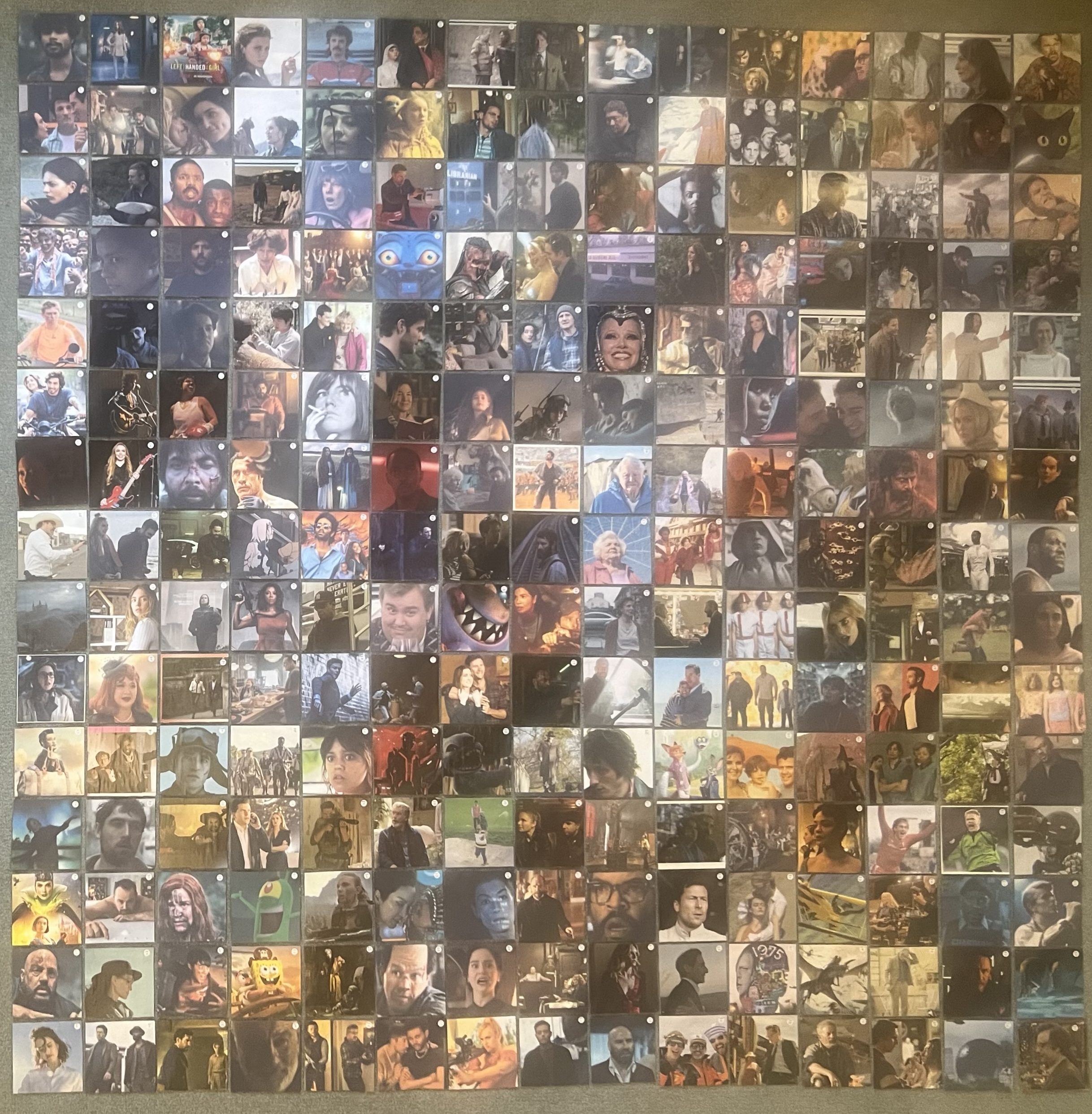
You have the wisdom to steal a stamp from Ian as you leave the house. You also lift a two pound coin and a couple of twenty pence pieces. You’re going to a Poetry Reading this evening and you’ll need some spends. Ian won’t miss the change so you slip them in your jacket pocket. Then you have to shuffle up to him for a goodbye kiss, with every muscle tensed, so you don’t chink.
Jim’s Fathers Day card isn’t going to be sloppy or rushed. You lean on a firm, flat surface. That big grey folded plastic wallet thingie from the glove compartment, the one that would tell you how to change the clock to British Summer Time in twenty three different languages, if you had the time to read it. You write the envelope very carefully and there are no major issues. You still remember the address. Well, you should do; you lived there for sixteen years. No postcode; they didn’t hold with postcodes in the olden days and Jim doesn’t hold with them now.
On to the card; date in the top right hand corner, ‘June 2009’ (a nice writerly touch). Make sure it’s still good and flat and that you’re not going to do wobble-writing as you go over the wallet press-stud. You're at the top of your game; best lettering now:
‘to Dad happy birthda…’
Bum.
You weigh up the options.
Ditch the card and buy another?
That card cost a lot of money and Jim loathes waste. The sub-Post Office is closed and you need to send the card and get to work. The sub-Post Office only sell cards with wheelbarrows and bottles of red wine as illustrations; not tasteful Toads. And, you’ve only got two pounds forty to your name.
Cross out ‘birthda’ and make a joke of your incompetence?
It’s hardly funny. Is this really the occasion to confirm to Jim that he's fathered a spanner?
Remove the front unmarked Toad of Toad Hall picture-half of the card and write on the back of that; pretend it’s the modern thing?
No scissors and it’s manifestly the cheapskate thing. For all Jim knows you could be reusing a card you’d received yourself for Caravan Day or Toad Day.
Overwrite 'birthda' to convert it into 'father'?
What have you got to lose?
Easy enough to transform the ‘bi’ into a cosy ‘fa’.
The ‘r’ is fine as it is; just go over it again so it’s as dark as the ‘fa’ (you can match-up the ‘happy’ in a minute).
‘th’ belongs anyway, that is a piece of good fortune.
This is the tricky bit; the round part of the ‘d’ is converted into an ‘e’. then you draw a little cap on the upright of the ‘d’ which creates an (admitted rather tall and slightly curly) ‘r’.
Just add a slightly larger than life-size ‘s’ so that the 'r' doesn't feel left out.
No need for an apostrophe - because fathers don’t own the day.
There, nobody would know any different.
A Fathers Day cards advertisement in the sub-Post Office window catches your eye and you see that there isn’t an ‘r’ after ‘fa’ in father.
No. Bum.
You glue the parallelogram of shiny cream paper carefully in the card over the incorrect writing. The incorrect writing is completely covered and only slightly visible. The shiny cream paper makes the card look like one of those hand-made efforts that you buy at a craft fair because you feel sorry for the person who made it.
You write the correct and beautifully spelt message in broad black Staedtler Permanent (Dry Safe) Lumocolor overhead marker pen. This doesn’t match the blue ballpoint date, ‘June 2009’ in the top right hand corner, but it does bleed slightly into the shiny cream paper, thereby helping to conceal the incorrect writing underneath.
Sadly, the funny shiny cream paper doesn’t seem to agree with the (Dry Safe) pen and, after five minutes, the lettering is still a bit smudgy if you catch the edges. So you anchor the card with a mug and point the fan at it for the morning.
When you realise that the lettering is as dried up as it’s going to get this century you remove the mug.
You resist the temptation to rub at the nasty ring mark with your finger; you know from harsh experience that only makes it worse. And with a bit of luck Jim won’t be able to find his spectacles when he opens the card anyway.
You fold the card carefully and slide it into the nicely addressed envelope and lean it in a prominent position against your monitor until you set off for town.
You haven’t been to a Poetry Reading at this venue before. You get very anxious in new situations so you intend to spend your dinnertime wisely by establishing:
Where The Building is.
Which Entry Door you’re meant to enter The Building by.
Where the special Poetry Reading Room is in relation to the Entry Door.
Where you’re allowed to stand in the special Poetry Reading room.
The Poetry Reading reconnaissance isn’t as successful as you might have hoped. You discover The Building easily enough; it’s where it was meant to be. But when you go inside The Building to the Information Place the helper-man is stern and intimidating. He tells you to,
‘Speak up!’ when you ask about the venue for this evening’s Poetry Reading. You repeat your primary query.
‘Where will I get in to come to the Poetry Reading this evening?’
He shakes his head.
‘It’ll probably be the entrance ‘round the side'.'
‘Side? What Side?’
This is the first indication you’ve had that The Building has anything other than a front, and possibly a back.
He waves airily in the direction of nowhere.
‘The Side. Sometimes they use that way, but they change their minds. I never know what’s going on.’
So, the helper-man doesn’t really know what’s going on.
Because you're disoriented you forget to ask to see the special Poetry Reading room so you can select a likely looking standing place.
This is your worst nightmare. Not only an unknowable standing place but an ill-defined Side Entrance too. You go out on the street and look for The Side Entrance. You locate a Side but, from where you’re standing on the pavement, there’s no trace of an Entrance. You walk up along what you take to be a building Side and locate a probable Entrance in a recess in the putative Side wall. You return to work, badly shaken.
You start to tell your patient friend about your disagreeable experience and your fears for the Poetry Reading this evening. Then you notice the nicely addressed Fathers Day card envelope leant in a prominent position against your monitor.
Your patient friend soothes you. She seats you on the best office chair and administers tea and three funny foreign-looking Balocco (cacao) wafer biscuits. The foreign-looking wafer biscuits have crouched morosely by the kettle since January, when people brought their unwanted Christmas fare to work. They are actually quite agreeable and they deliver a remedial shot of chemicals and sugar.
With your reason restored you decide you will post the Fathers Day card this evening, on the way home, after the Poetry Reading. That way, at least Jim should receive it by Monday.
And, looking on the bright side, you’ve probably worked out the origin of the term ‘guidelines’.
I trained as an archaeologist but I usually prefer messy prehistoric people to Romans.
Romans always give the impression of being obsessively and compulsively organised. However, I’ve just visited the site of the Vindolanda Roman fort in Northumberland; actually 





















.JPG)



4 comments:
What a great read. I could identify with you every step of the way. Please let us know when the card arrives :-)
Thanks Sandy
It was just a story. Although admittedly the bit about the wrong greeting and the bit about mis-spelling father and the bit about sticking the bit of paper over the mis-lettering were based on experience. Oh, and the bit about the unhelpful information man...
Anyway, he has received his card and was very happy with it (seems he's exceedingly fond of Toad of Toad Hall)x
Excellent! I thoroughly enjoyed this.
Is that a swing bin, though?
Darnit!! I knew someone would notice that. It isn't is it?
(Thanks for for nice comment though)
Post a Comment